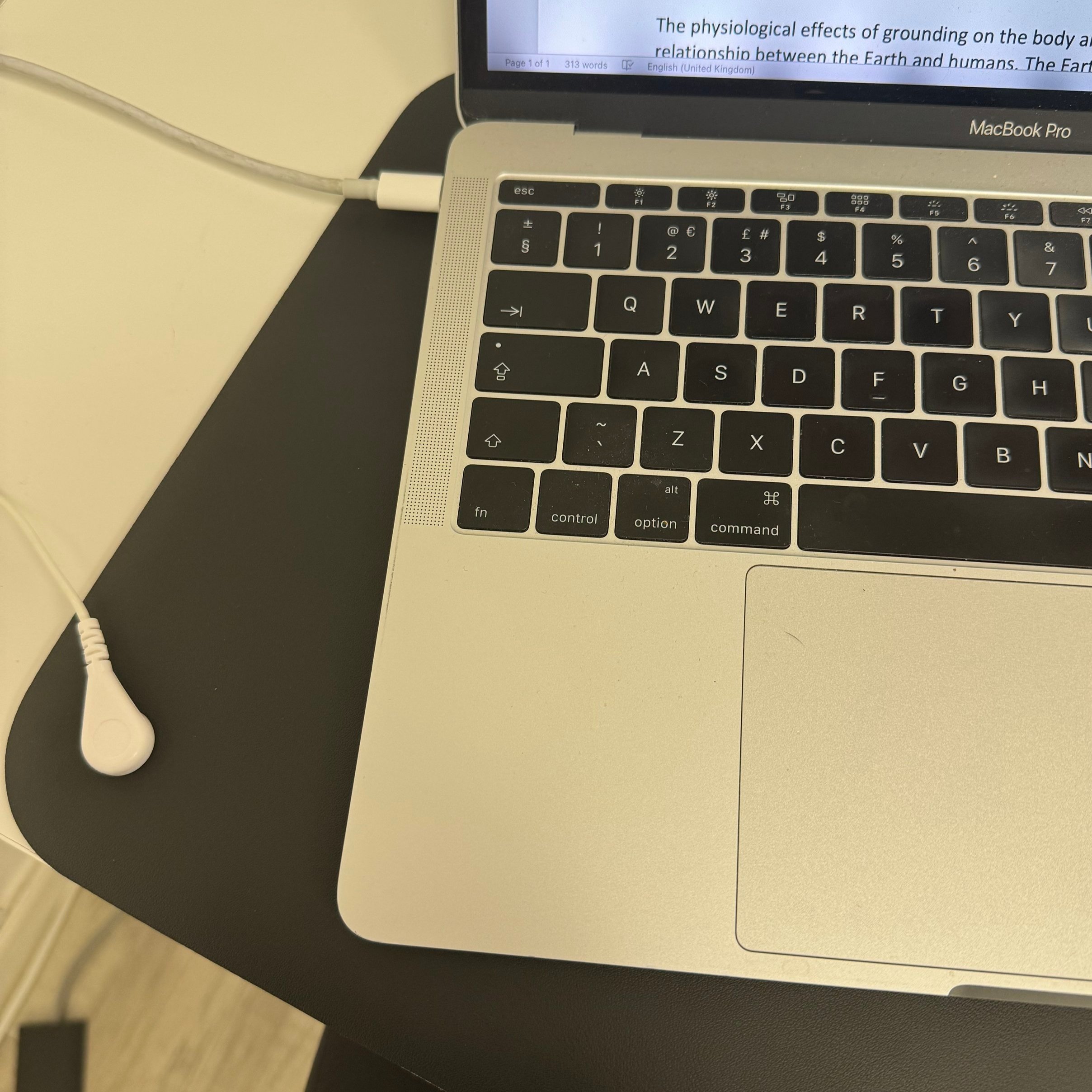Why Grounding Is Essential For Health
Before I get into why grounding is essential for health I want you to ponder this fact. Some individuals go through life never putting their bare feet directly on the ground without rubber soled shoes or trainers on 🤔.
You might be thinking, why is this important? You might also be thinking that you really don’t want to put your feet directly on the ground. If you are asking yourself these two questions then this blog is for you.
A side note, you can ground using your hands 🖐️ too, touching the ground, trees 🌲 or rocks. As long as you are directly touching earth 🌎. It doesn’t matter what part of your body you use. If this doesn’t sound like your cup of tea, there are grounding matts you can use in the comfort of your house and still reap the benefits. As I type this I have my grounding matt underneath my laptop. We have also been using a grounding bed sheet for the past year too.
Why It Makes Sense – The Science
The physiological effects of grounding on the body are thought to be rooted in the electrical ⚡️relationship between the Earth and humans. The Earth's surface carries a subtle but constant negative charge, while the human body can accumulate a positive charge due to various factors such as environmental pollutants, stress, and electromagnetic radiation.
When a person engages in grounding by direct physical contact with the Earth, whether through barefoot walking on grass or soil, or grounding matts in doors, this electrical interaction occurs. This connection facilitates the transfer of electrons from the Earth to the body, helping to neutralise excess positive charges and restore a more balanced electrical state 🔋.
This process is thought to have several potential benefits, including the reduction of inflammation, modulation of the autonomic nervous system, and improvement in sleep quality. While research is ongoing to validate these claims and understand the precise mechanisms, the electrical relationship between the Earth and humans remains a central concept in grounding practices and their potential impact on physiological well-being.
Reduced Inflammation and a balanced nervous system
These are two reasons why I started looking into grounding. To see if it was something that I could utilise to help create a more favourable internal environment to heal. Inflammation plays apart in most disease processes, especially things like tumours. Last January I had a benign tumour removed from my pelvis, that was replaced with a titanium implant. Three months after I had a chest CT scan, which showed that there had been a spread to the lungs. This is being monitored at the moment. Reducing inflammation in my body will only help my situation so that was one reason for investing in a grounding matt and a mattress cover. Having a balanced nervous system is also essential for health, to rest, digest and express optimum health your nervous system needs to be predominantly in a parasympathetic state. Another reason why I made the conscious effort to making grounding a daily non-negotiable.
Grounding is not the be all and end all for you to express health, but is definitely an important factor to consider. Health is an accumulation of your:
🚶♂️- Daily movement habits
😴- The quality of your sleep
💧- The water you drink and the food you eat
🧠- As well as how well you manage and adapt to the stressors of daily life.
Making small changes, aiming to be a little bit better each day and being consistent is what helps improve health. I think grounding is one change we all can make, with relatively little effort but with the possibility of big returns.
It make sense to why we need to touch the ground. Before trainers our ancestors would have direct contact with the ground most of the day.
➡️ Take home points to why you should incorporate grounding into your daily routine:
✅Reducing Inflammation: The Earth's surface has a negative electric charge, direct physical contact with the ground can help balance the body's positive charge, potentially reducing inflammation. Inflammation is associated with various chronic diseases.
✅Balancing the Autonomic Nervous System: Grounding is believed to have an impact on the autonomic nervous system, helping to balance the sympathetic and parasympathetic branches of the central nervous system. This balance is crucial for overall health and well-being, as it affects functions such as heart rate, digestion, stress response and capacity to heal and express health.
✅Reducing Stress and Cortisol Levels: Grounding has been associated with lower levels of the stress hormone cortisol. Spending time outdoors and connecting with nature, which often involves grounding, has been linked to reduced stress and improved mood.
Some studies suggest that even short periods of grounding, such as 30 minutes to an hour, may have positive effects on physiology, including changes in cortisol levels, heart rate variability, and inflammation markers.
However, it's essential to note that the duration and frequency of grounding that produce optimal results may depend on individual factors, including health status, lifestyle, and environmental conditions.
Personally I think we should aim for at least 20-30 minutes a day. I appreciate this can be difficult in the winter. That is why having a grounding matt or bed sheet in your house make it easier. Grounding when sleeping means you are grounded for at least 7-9 hours a night. A lot closer to what our ancestors would have been exposed too.
Have a grounding matt, like the one in the photo above, means you can be grounded when working at your desk or any other activity where you are sat or stood. I use mind when doing meditation and breathe work too. So for an investment of £30-£40 it is well worth it.
My sleep quality has improved and overall sense of ease and calmness is noticeable when I am consistently grounding. A good sign my nervous system is better balanced.

